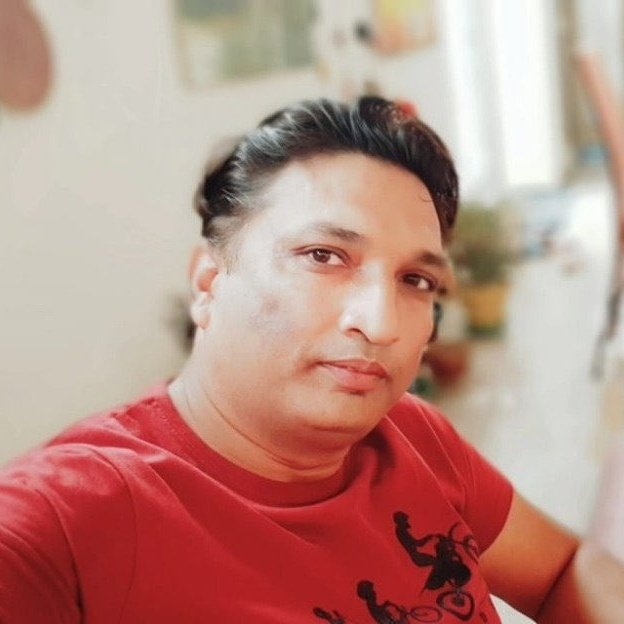KARACHI: Soon after leaving home early last week to drop his children to school in the Pakistani port city of Karachi, Athar Mateen, a news producer at a local television channel, saw two men on a motorbike robbing a citizen at gunpoint.
Mateen rammed his car into the motorcycle to stop the muggers, who shot at the journalist’s car before stealing a passerby’s motorcycle and speeding away. The news producer died on the spot in his car, just a few hundred meters away from a police station and about a kilometer away from a headquarter of the paramilitary Rangers.
The journalist is now one among at least 15 people killed in street robberies gone wrong in Karachi since January 1 — part of a surge in crime that government officials, victims and experts blame on inaction by law enforcement agencies and low conviction rates by courts for repeat offenders.
Until 2013, Karachi, a city of at least 18 million people, had a reputation as one of the world’s most dangerous places. Then the Rangers moved in to make its mean streets safer in a crackdown that has come to be popularly called the “Karachi Operation” and which saw crime rates plunge and some of the country’s most-wanted men put behind bars.
In recent months, however, crime is back on the streets of Karachi, alarming authorities and citizens who fear for a city that is home to Pakistan’s main stock market, which handles all of the cash-strapped country’s shipping and which generates most of Pakistan’s tax revenue.
“Karachi is once more drowning in fire and blood,” interior minister Sheikh Rashid Ahmed said in a statement after Mateen’s killing, calling on the provincial government of Sindh, of which Karachi is the capital, to take “strict measures.”

This undated photo shows Athar Mateen, a news producer at a local television channel killed Karachi on Feb 18, 2022. (Photo Courtesy: Social Media)
“Police are no longer in control of the situation in the province,” the minister added.
The chief minister of Sindh, Murad Ali Shah, admitted to a surge in street crime in the last month and a half, and admitted that police and Rangers’ neglect was a major problem.
“I usually visit the city secretly but hardly have seen police and Rangers on the roads or on patrolling duty in the respective area,” he said at an official meeting this week on controlling crime. “This is unacceptable.”
“Where are your station house offers, what are they doing and what is their performance?” he asked, addressing top cops in the city.
A Rangers spokesperson referred Arab News to ISPR, the media wing of the army, for comments for this story. ISPR did not respond to various attempts to seek answers.
Karachi police chief Ghulam Nabi Memon said his force was working hard to curb rising street crimes.
Earlier this month, the Sindh government abruptly removed Karachi police chief Additional Inspector General Imran Yaqoob Minhas after only nine months on the post and replaced him with Memon. Karachi administrator Murtaza Wahab confirmed to Arab News the change was brought about specifically due to a rise in street crimes.
Police figures reveal a mounting problem.
In 2019, 44 people were killed in Karachi and 282 others injured while resisting being mugged or their cars or motorbikes stolen. In 2020, the number rose to 51 dead and 332 injured. In 2021, the number rose further to 72 dead, with 445 people injured.
This year, in January alone, 10 people lost their lives in street crimes gone wrong while 70 were injured. In February, five people, including Mateen, died and over a hundred were injured.
The numbers for carjackings and cell phone theft on the streets have also spiked.
Around 120 cars and 949 two-wheelers were stolen in roadside snatching episodes in 2018 respectively, figures that rose to 235 and 4,388 by 2021 respectively. Around 19,826 cell phones were stolen in street robberies in 2018, and 25,139 in 2021.
As per figures, many of those killed were during cell phone robberies gone wrong.
One of them was Uzma Barkat Ali’s 20-year-old son Osama who was having dinner at a fast-food joint in a North Karachi neighborhood earlier this month when he was shot point blank by street robbers trying to steal his cellphone.
“It was as if the heavens fell down on me,” Ali told Arab News last week. “It’s as if they took my world from me.”
“All I want is justice,” she said. “The killers should be arrested and hanged so they may not kill the Osamas of other mothers.”
Police chief Memon said his force would bring the killers of victims like Osama to justice.
But family members and friends of victims, as well as experts, interviewed by Arab News said they believed “inaction” by law enforcement agencies was a big part of the problem, as were low conviction rates.
Tariq Mateen, the brother of the deceased news producer, blamed “police, Rangers and the Sindh government” for the murder. He said officials were responsible for both “incompetence and connivance” with criminals.
“Street crimes have reached a level where every citizen of Karachi has got extremely frustrated but both police and Rangers are doing nothing,” Farhan Mallick, director news at Samaa TV where Mateen worked, told Arab News. “A Rangers check-post is a few hundred meters away from the place where the incident happened and it speaks volumes about the inaction of law enforcement, who have left the citizens at the mercy of criminals.”

People comfort a relative of TV producer Athar Mateen, who was killed by robbers, in Karachi, Pakistan, Friday, Feb. 18, 2022. (AP)
Mazhar Abbas, a veteran journalist who has covered crime in Karachi for four decades, also blamed police and Rangers inaction for the surge, and said a low conviction rate contributed to the problem. Of 7,179 people arrested in street crimes last year, 3,666 were out on bail and 3,513 acquitted, according to figures from the Sindh government.
”It’s the responsibility of both [police and Rangers] to control,” Abbas said. “No crime can happen if police don’t have connivance and they perform their duty.”
He added: “It [rising crime] has more to do with police inaction and lack of prosecution, which gives criminals a sense of freedom to carry out street crimes.”
“It is the weakness of the police that they are not investigating the cases properly,” chief minister Shah said, commenting on the figures.
Police chief Memon acknowledged that “some elements” within the police may have links with criminals but this was at a “small and individual level” and action was taken against such officials. He also outlined new steps being taken by police.
“A safe city authority is to be established but before it gets functional, Sindh police have encouraged private installations like superstores and shops to install CCTVs,” Memon said. “Around 30,000 cameras have been installed during the last couple of years and are being used to identify culprits.”
But Zoha Waseem, an academic with expertise in policing at the University of Warwick, said preventing street crimes required addressing structure problems, such as income inequality, unemployment, class-based discrimination, and a lack of political representation and empowerment of the working class.
“Policing (whether it is through the police or the Rangers) can only be a response to street crime, it cannot prevent it entirely,” she told Arab News. “At most, you can deploy more policing resources to certain areas, for hot spot policing or deterrence and intelligence-collection. This can help reduce crime, but it cannot stop people from committing crimes.”
“Dismantling terrorist groups, ethnic gangs, militant wings, helped reduce a particular type of violent crime,” Waseem said. “Street crime is a different kind of challenge born out of much larger social and economic issues.”











